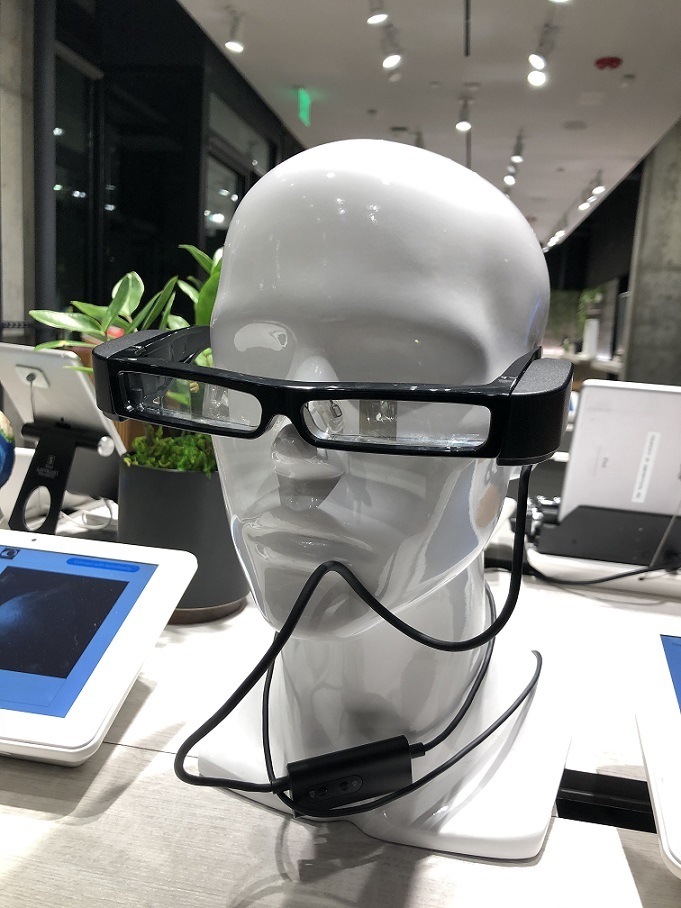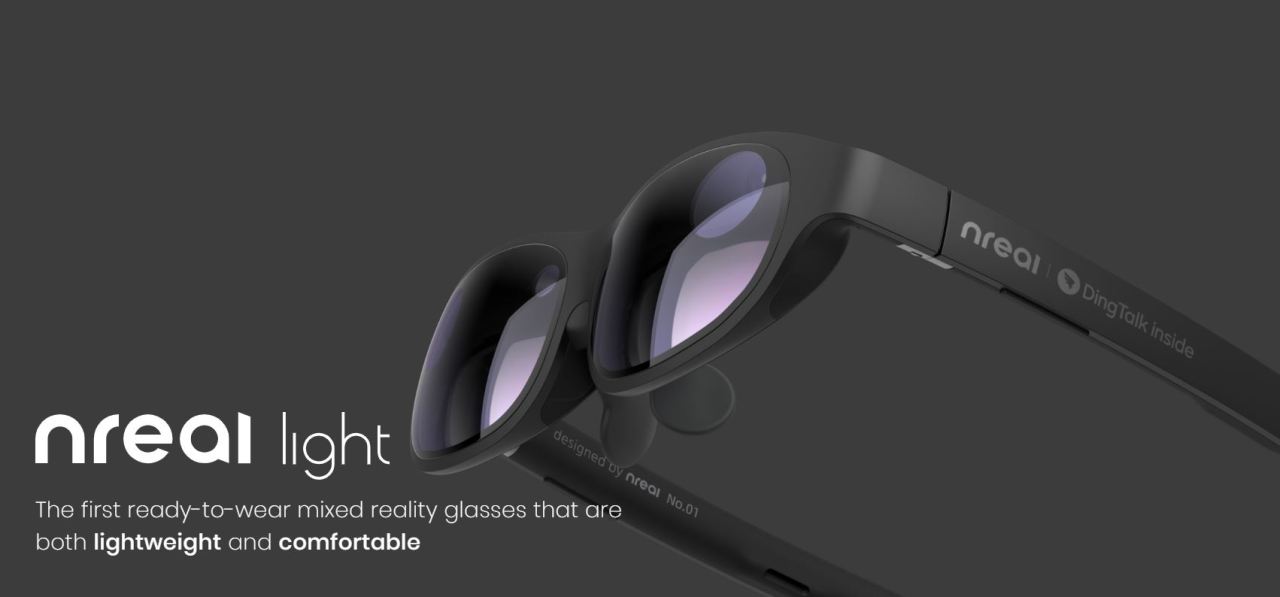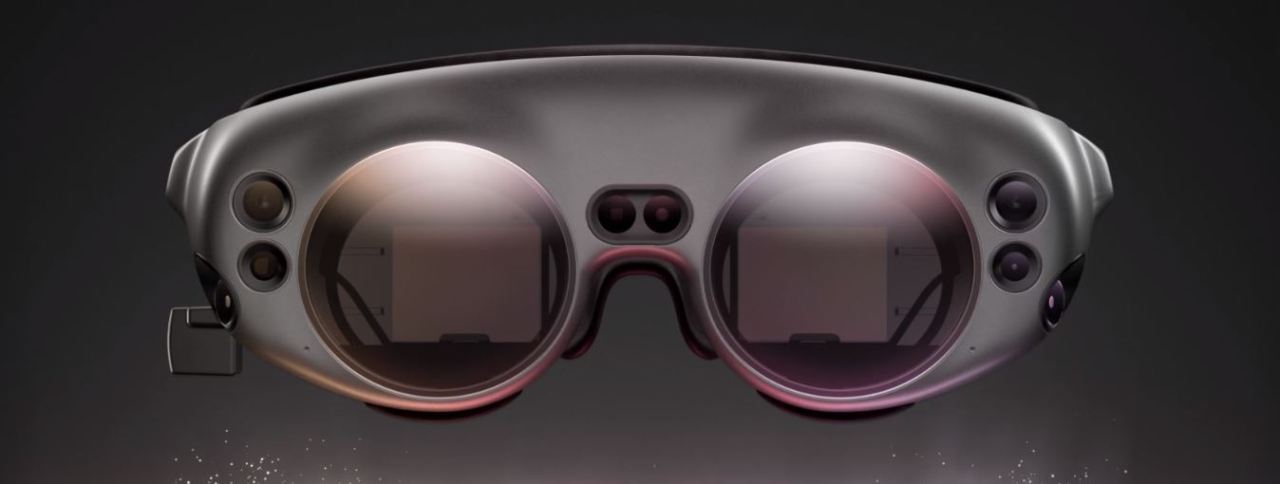[News Focus] Are AR glasses really around the corner?
By Lim Jeong-yeoPublished : June 14, 2020 - 15:27

Glasses that show you directions on a road you have previously never walked, or that present a meeting room table filled with participants not physically occupying the seats in the same room -- these may become a thing of the real world soon enough.
When Google first put forth the first generation of a glasses-type wearable augmented reality device in 2012, the immediate question that arose took issue with the hefty price range, security issues and heavy design.
The next generation of AR glasses, however, will not only have a lighter weight and price, but also more diverse suppliers, as companies seek new form-factors and operating systems.
Global giants are busily unveiling their plans. Google showed off its hands-free device Google Glass Enterprise Edition 2, weighing only 46 grams and priced $999, in April for businesses and developers.
When Google first put forth the first generation of a glasses-type wearable augmented reality device in 2012, the immediate question that arose took issue with the hefty price range, security issues and heavy design.
The next generation of AR glasses, however, will not only have a lighter weight and price, but also more diverse suppliers, as companies seek new form-factors and operating systems.
Global giants are busily unveiling their plans. Google showed off its hands-free device Google Glass Enterprise Edition 2, weighing only 46 grams and priced $999, in April for businesses and developers.

Google’s upgraded AR glasses are designed for workers in health care, engineering and other industries to help improve working processes and reduce trial-and-error.
Facebook is developing the Orion AR glasses with Ray-Ban maker Luxottica, while Apple is also in the race after acquiring Akonia Holographics and NextVR, companies that make lenses for AR glasses and virtual reality entertainment contents, respectively.
Apple is rumored to produce a prototype within this year.
In Korea, telecom firm LG Uplus is preparing to launch Nreal Light, an 88-gram set of AR glasses that provide a 52-degree field of vision, in collaboration with Chinese startup Nreal in the third quarter of 2020.

The consumer kit of the Nreal Light is priced at $499 and marked “available soon” on the official website, while the developer kit is marked at $1,199 and open for preorders.
LG Uplus says it will become the world’s first to roll out consumer-ready AR glasses.
While there are already business-to-business uses for AR glasses -- such as for showing the finished look of a building even before construction begins -- if LG Uplus launches its AR glasses in the third quarter, they would be the first consumer-oriented AR glasses in the world.
To that end, LG Uplus is working to provide approximately 3,000 different content services through the Nreal Light glasses, which already include watching professional baseball and golf games on a virtual screen, and libraries that allow users to read books.
“AR glasses will see an explosive growth this year due to the 5G network,” an LG Uplus official told The Korea Herald. “Regular consumers will be able to view what’s on their smartphone screens via AR glasses and watch movies and play games, all thanks to 5G.”
AR content is heavy on data by nature, and on the previous Long-Term Evolution network, lag had been inevitable.
With the expanding network of 5G in Korea, commercial AR glasses will suffer no such speed limits. However, what the Nreal Light shows is nontransparent, and not suitable for driving. The glasses also have to be connected to a smartphone via a cable, as it sources power from the device’s battery.
In order for Nreal Lights to go wireless, it will have to have an in-built battery that does not detract too much from its lightweight selling point. It would also have to be equipped with a SIM card and a communication module, the LG Uplus official said.
Nreal Light has a price-competitive edge when compared to Microsoft’s HoloLens 2, which launched at $3,500 on Thursday, and Magic Leap’s Magic Leap 1, which released at $2,300.
Magic Leap 1, made by a US startup, is to launch in Korea in partnership with SK Telecom.

Magic Leap 1 weighs 316 grams -- as light as a pair of headphones -- according to the official website. Microsoft’s HoloLens 2 weighs 566 grams.
Korean tech leader Samsung Electronics is also preparing its own AR glasses. The company recently applied for patents for a glasses-type wearable navigation device for drivers.
Samsung’s AR glasses will give directions to those behind the wheel to show them where to change lanes and where to enter the high way. Samsung Electronics has also applied for patents for foldable AR glasses design.
By Lim Jeong-yeo (kaylalim@heraldcorp.com)









![[Today’s K-pop] BTS pop-up event to come to Seoul](http://res.heraldm.com/phpwas/restmb_idxmake.php?idx=644&simg=/content/image/2024/04/17/20240417050734_0.jpg&u=)
![[Graphic News] More Koreans say they plan long-distance trips this year](http://res.heraldm.com/phpwas/restmb_idxmake.php?idx=644&simg=/content/image/2024/04/17/20240417050828_0.gif&u=)
![[KH Explains] Hyundai's full hybrid edge to pay off amid slow transition to pure EVs](http://res.heraldm.com/phpwas/restmb_idxmake.php?idx=644&simg=/content/image/2024/04/18/20240418050645_0.jpg&u=20240419100350)





![[KH Explains] Hyundai's full hybrid edge to pay off amid slow transition to pure EVs](http://res.heraldm.com/phpwas/restmb_idxmake.php?idx=652&simg=/content/image/2024/04/18/20240418050645_0.jpg&u=20240419100350)

